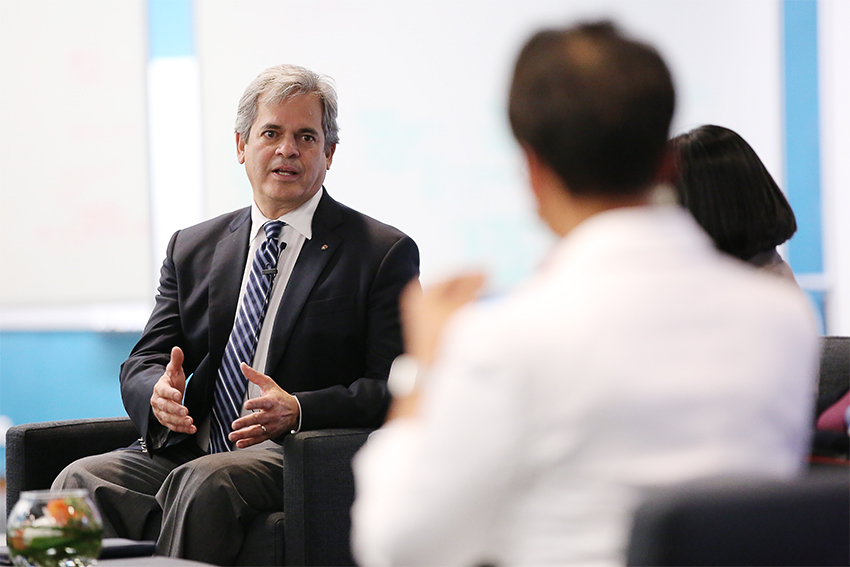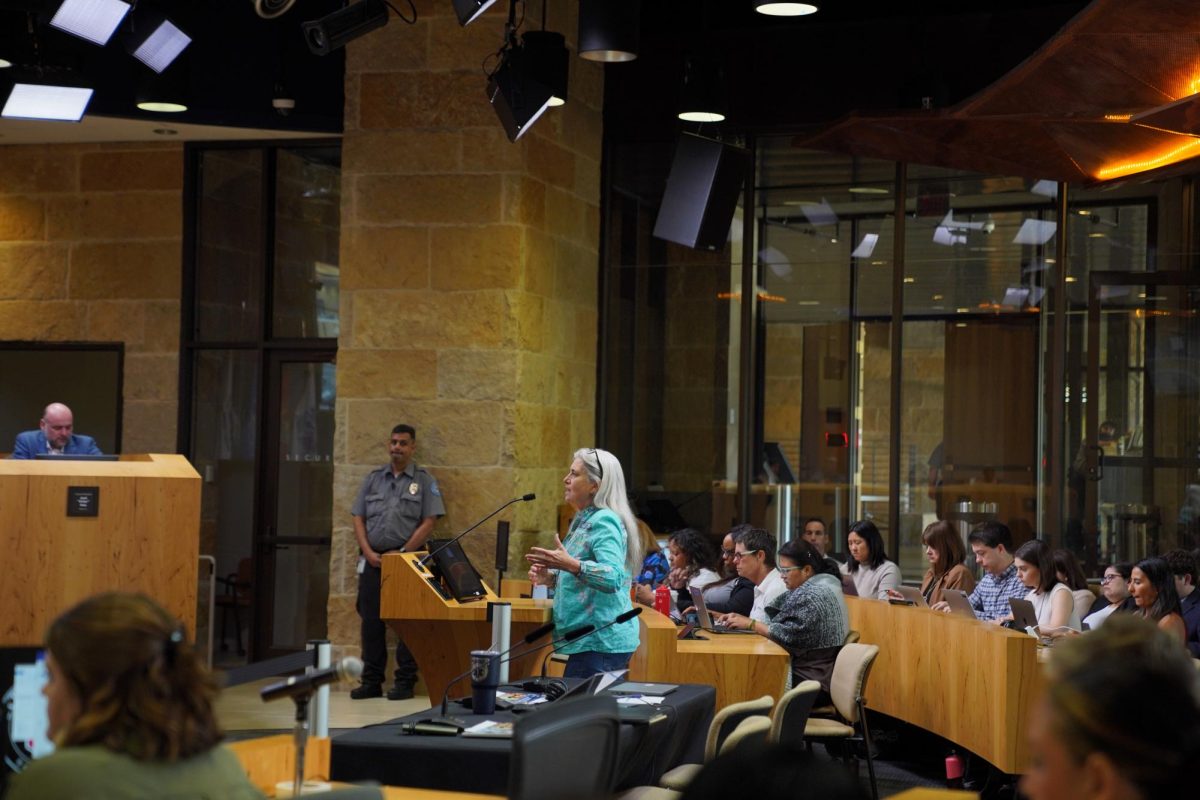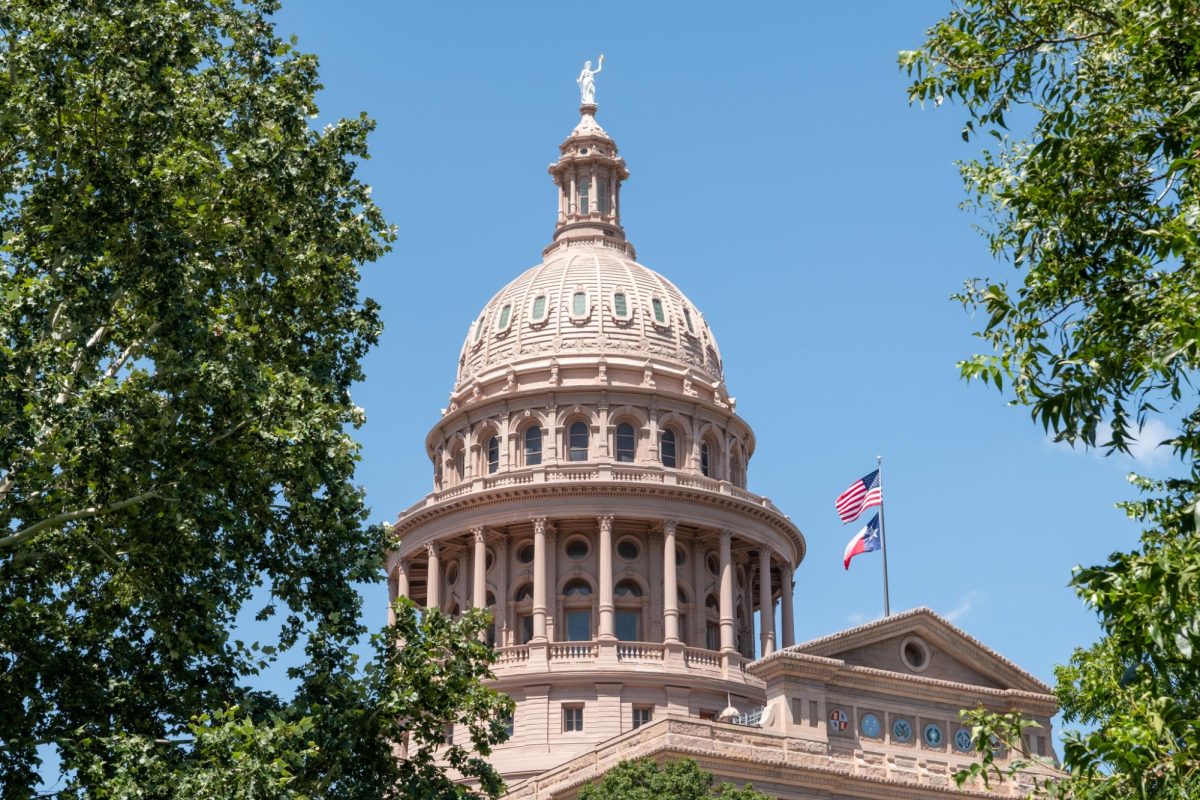After President Donald Trump announced U.S. withdrawal from the Paris climate accord, Austin Mayor Steve Adler was among eight mayors across the country who pledged to adopt climate policies without the federal government.
Adler reaffirmed this commitment last Wednesday during a transportation panel and discussed existing goals to reduce the city’s reliance on fossil fuels.
“One of the biggest things that we can do is to shutter the Fayette coal plant,” Adler said. “It’s something we’re trying to accelerate.”
The Fayette Power Plant is a coal-fired power plant in La Grange, Texas that is co-owned by Austin Energy, the city’s electric provider. Austin Energy made plans last year to shift away from the Fayette plant, the company’s only coal-generated source, in order to diversify its sources of energy.
Jennifer Herber, marketing communications consultant for Austin Energy, said the company is working with city council to retire from the coal plant by 2023.
“This is a difficult process, both legally and financially,” Herber said. “Our co-ownership of the plant helps pay for the cost of electricity and we are able to pass along those savings to customers. Austin Energy continues to discuss with Council paths to achieving the goal of retiring the Fayette Coal Plant.”
Adler pointed to city council’s approval of Austin Energy’s solar purchases in 2015 as an example of the city’s long-term commitment to reducing greenhouse gases. Adler said the city is on its way to fulfill its 2014 pledge to run on at least 50 percent renewable energy by 2025.
“This is a city that, for as long as I can remember, has been really at the forefront of pro-environmental municipal decisions,” Adler said.
According to Austin Energy, 30 percent of the energy used last year came from renewable sources. Pushing past the city council’s original 50 percent benchmark, Austin Energy now projects to have 55 percent of its energy portfolio from renewable energy by 2025.
Adler said a renewable goal for the city is to motivate residents to drive fewer cars and follows a long term plan to reduce vehicle trips by Capital Metro and CodeNEXT, the city’s revision of its land development code. During the transportation panel last week, Capital Metro CEO Linda Watson said the company is working to motivate residents to drive less and ride public transit more.
“By the end of this year, we will have 99.9 percent of our bus stops be accessible on curve cuts and sidewalks,” Watson said.
Adler said electric vehicles will also reduce the city’s carbon footprint.
“We’re trying to move forward with greater electrification of fleet vehicles that we have in this city,” Adler said. “Buses will be a huge opportunity for us to do that.”
Adler said there is no timeline yet for Capital Metro to adopt electric vehicles, but he is negotiating with other cities to collectively invest in electric vehicles.
“Half of the climate change litigation in that international accord is done by cities, not by federal governments or states,” Adler said. “The fact that the President has pulled out of that agreement does not mean that our city isn’t going to continue to do otherwise.”





















